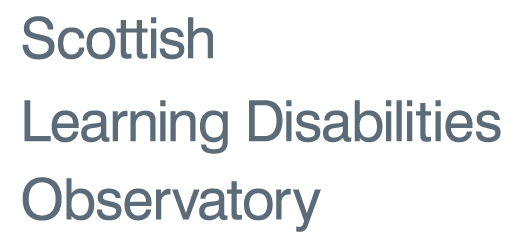Engagement, Involvement and the barriers we face to achieving inclusion
At the recent Observatory Conference in May 2019, we had the opportunity to co-facilitate a workshop with Lois Cameron from Talking Mats on the topic of Inclusive Research.
The aim of the workshop was for delegates to:
- Learn more about the Research Voices project
- Understand more about the benefits and barriers of inclusive research
- Think more about how to bring the principles of inclusivity into our practice
In our presentation, we discussed the Research Voices project and some of the barriers we had faced as a team in trying to be inclusive. We talked about some of the challenges of finding funding when an idea still felt a bit like ‘jelly’, as well as the benefits of using an inclusive approach to appointing a project lead.
We asked groups to look at complex academic information and abstract ideas and try to explain them in ways that were grounded and easy to understand. Groups recognised how much time is needed to really look at communication and cut through the jargon
One of the key talking points of the session was exploring the difference between engagement and involvement and which we do more professionally.
Engagement is... “where information and knowledge about research is provided and disseminated”
Involvement is… “research being carried out ‘with’ or ‘by’ members of the public rather than ‘to’, ‘about’ or ‘for’ them”. (NIHR, https://www.rds-sc.nihr.ac.uk/information-for-researchers/)
Some delegates talked about engagement being part of their day-to-day activities but some delegates struggled to achieve involvement because of institutional barriers, funding limitations and time constraints. Some of our delegates came from a practice background rather than a research background so looked at involvement from a service design perspective.
The most interesting discussion from the session came from the group, we asked people what their strengths were when it came to engagement and involvement and what barriers got in the way.
Some key themes that emerged were
- What works well/what do we do well?
- Communication- using adapted approaches like Talking Mats or creative approaches
- Relationship and trust building with groups
- Allowing for meaningful choices
- Recording our success
- Sharing skills and acknowledging what we each offer
- Working with disabled peoples’ organisations to bring together focus groups of people with lived experience
- Getting good feedback on services
- What are the barriers we face?
- Ethics processes acting as a barrier
- Activity focused in cities rather than rural communities – excluding some voices and presenting fewer opportunities
- Getting access to groups
- Not formally recording the process and feedback
- Engaging with groups with different support needs and balancing everyone’s outcomes in this
- Understaffing, underfunding and lack of investment
- Finding a clear focus in working together
- Developing accessible information and designing accessible meetings
- Making sure we meet new people rather than the same group
An important point that some delegates talked was about the important details of engagement – who sets the agenda? Where do we meet? And often, these details are what really makes the experience meaningful for people.
Overall, the group discussion echoed many of the challenges and opportunities of involvement presented in the evidence base around inclusive research. But having the opportunity to connect with people in different environments and share ideas around inclusion brought a renewed sense of energy to the work the Research Voices team is doing.
